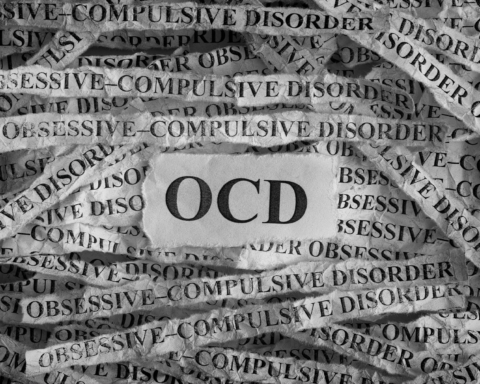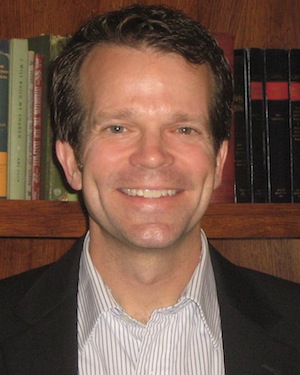“Hey there, you must be Ryan…” A comforting, yet confident, voice called my attention away from the coloring book that I’d snagged from our elementary school-styled activity cabinet.
“I am,” I replied, upon surveying the speaker of the voice. As for the coloring book? Pencils, paintbrushes and pens were far too pointy to be used unsupervised, so all of my artistic aspirations for the week were limited to the box of broken crayons that sat before me.
“My name’s Jeff.” The well-dressed man smiled as he took a seat beside me. “I was told you wanted to meet with me — I’m the chaplain here.”
“Oh! Yes! Thanks for coming.” I set down the dull stick of yellow wax that I’d been using to shade the two-dimensional depiction of a sun that I was only allowed to observe through a thickly-paned window. “Though, I must admit, I like your seat better.”
“Oh…um… We could switch seats if you prefer.”
“No need.” I chuckled as I watched the confused clergyman study our two identical chairs. All the furniture in the Fremont Psychiatric hospital was standardized, sterilized and heavily weighted in order to prevent it being thrown across the room. “My discomfort doesn’t come from the seats we are sitting on…” I paused to adjust my position in emphasis of my point. “It’s the role of patient that I’m uncomfortable with. You see, up until recently I was playing the part of a seemingly sane Presbyterian minister who, ironically enough, was trained as a psych chaplain.”
“Really?” A mixture of professionalism and pastoralism kept him from asking the question that we both knew was on the tip of his tongue: What the hell happened!?
It was a question that I’d been dancing with for days, and the gown now draped over my emaciated-anorexic body only added to my depressive state. Yes, I thought. What the hell happened? When had I veered off track and hopped aboard the ‘crazy’ train? I’m ‘supposed to be’ a mental health provider — not a patient!
That’s when the name-badge on the chaplain’s neatly pressed shirt triggered a flashback to a conversation I’d shared with another chaplain some 20 years before. You see, this wasn’t my first stent in a psychiatric hospital, so much as a replay of a residential eating disorder program I’d undertaken my freshman year of college. I, a slightly obnoxious agnostic-anorexic endurance athlete at the time, came to appreciate visits from the resident chaplain, who would stop by to pray for the patients and entertain my philosophical ponderings.
“What’s the purpose of life?” I asked one morning with a tint of sarcasm.
“That’s quite the question,” she said with a smirk. “However, in my opinion, the answer is pretty simple.” She paused so that I could ponder my purpose for asking. ”The purpose of life is to find purpose and pleasure in living.”
Flash forward two decades and those words of wisdom came full circle as I asked once more: What the hell happened?
The answer? As simple as it’d been two decades prior. I had lost my sense of purpose. I had lost my why, and, upon realizing it, tears formed in my eyes.
This loss of self, inspired by a covid-quarantine eating disorder relapse that had landed me in the ICU, had forced me to step away from my professional role as an ordained Presbyterian minister, addiction recovery counselor and nonprofit leader, and into the shoes (or slippers) of a psych patient. A patient, im-patiently re-evaluating his purpose for being. Humility aside, this roll reversal from chaplain to patient— complete with its long days of pondering (and pouting) over puzzles with missing pieces and ego-squelching elementary school art projects — proved one that I wish every pastor could experience, for the reason that it forced me to reassess my perspective on pastoral calling and our means of mental health in the church.
It was at that moment, amidst my introspective silence, that something beautiful happened. Just as the tears of self-disgust were about to make their way down my cheek, I surveyed the room, and my placement in it, and I began to laugh. I laughed at myself and God’s means of humbling God’s overly serious, forgiveness-starved, child via forced pastries. And I laughed loudly — likely reinforcing the label, crazy, I’d gained upon my admission. However, in that instant, I no longer cared about labels, nor which seat I was in. I had stepped out of my ego, and in such, the only thing on my mind was how great it felt to laugh again after spending so many years clinging to control and attempting to change who I was in order to pursue a sociologically-prescribed, not spiritually derived, calling.
Leap forward two years:
Am I recovered? Absolutely not — anorexia is a serious mental illness and recovery is a life-long journey; however, for as exhausting as the past two years have been I have stopped starving myself of food and forgiveness.
Have I resigned my role of pastor or counselor? Not in the slightest — I strengthened it through life experience.
Do I feel like a hypocrite trying to help others while still struggling myself? Sure, but who doesn’t? We all experience mental health hiccups; however, the crazy thing is pretending to be perfect or attempting to overcome them in isolation.
Finally: Has my sense of call changed? Undoubtably, though I like the term, evolved, much better. Our calling as Christians is dynamic and we risk straying from it the moment that we attempt to control it.
Thus, with this side-splitting epiphany in mind, I turn to the wisdom of Oscar Wilde, who wrote: “Life is far too important to be taken seriously.” And how seriously we faith leaders often take ourselves! Sure, we want to provide Christ-like counsel and preach provocative sermons,but let us not put on so professional a mask in doing so that we stifle our ability to laugh — whether at ourselves or the world we seek to fix! And so, with Wilde’s words and the resurrection of my long lost laughter fresh in spirit, I invite you to join me on a mental health mission to de-stigmatize mental illness in the church by ditching the labels of crazy or demon-possessed, and embracing OUR Christlike Kooky.
Allow me to explain:
“What were you like as a child,” my psychiatrist asked during an intensive autism evaluation session several months following my discharge.
“Um, unique…but happy,” I said while chuckling my way through a long list of beautifully imaginative idiosyncrasies that defined my youthful years. As I did, something wonderful happened: I began to realize that all the many kooky characteristics that made my childhood so special, were precisely what had made my adulthood so painful. Not because my ways of living were wrong, crazy or condemnable so much as because somewhere along the way, the world told me who I was supposed to be — and I loathed the person whom I actually was in response. Whereas my imagination had been a praised and playful gift as child, it became a source of anxiety and self-animosity as an adult. I hadn’t changed over the decades, but the kookiness that had made my family smile while growing up was diagnosed as disordered in adulthood. Enjoying a specific-colored skittle during each commercial break of TGIF on Friday night as a child was evidence of “obsessive compulsivity” in adulthood. Running mindless laps around the house to subdue my anxiety was now an example of ADHD. My ability to entertain myself with my shadow and the joy I took in being my own best friend was all the sudden “Autistic…” Yep, I was mentally ill alright — infected with a disordered-disease that could better be labeled personality.
I walked off that evaluation after 18+ hours of probing and prodding, the same exact person that I had been when I entered; however, I was now officially disabled and disordered — a hyperactive-autistic-anorexic. So I did what any disordered-disabled 37-year-old child would do: I called my mom!
“He diagnosed me autistic!”
“Yeah. So what?” my mother calmly replied.
“So what!?” How could she be so nonchalant?
“You’ve always been kooky, Ryan. But you were the happiest kooky kid I’d ever seen. Why would I have had you diagnosed as disordered when you were so contently and creatively you?”
Her words were such as the late John Lennon, who recounted a scene from his youth during an interview shortly proceeding his murder. “My mother always told me that happiness [kookiness] was the key to life. When I went to school, they asked me what I wanted to be when I grew up. I wrote down ‘happy’. They told me I didn’t understand the assignment, and I told them they didn’t understand life.”
With this in mind, I cannot help but wonder what would happen if we as faith leaders focused our attention on encouraging individuals to accept theirselves for who God created them to be, not who they feel the world wants to see? If we ditched the disorderly, disabling and disempowering labels of the masses in an effort to promote self-acceptance as the cornerstone pastoral counseling. What would it look like if we came alongside congregants in an effort to add laughter to their life by uplifting their child-like kookiness; instead of pushing them to change their being because they saw their blessed kookiness as a little crazy?
“Truly I tell you, unless you change and become like little children, you will never enter the kingdom of heaven…”
We were all created kooky — thus, maybe the first step to discern our true calling was to return to the gentle, jovial spirit of it? Not to psychological immaturity, but a state of emotional and spiritual acceptance. So before you return to your day, write your next sermon, visit your next congregant, teach your next class or read your next verse — take a deep breath, and laugh a little at your adult self upon exhalation. And whether you find yourself in the role of patient, provider, supporter and/or observer remember that mental health starts with having a healthy regard for who God created you to be. So be kooky and Christ-like, my friends, and go crazy empowering others to do the same in the healthiest and happiest of ways!
Rev. Capt. Ryan Althaus, MDiv is the founder and director of Sweaty Sheep Ministries (www.sweatysheep.com) as well as the Hunger and Inclusion Advocate for the Presbytery of San Jose. Join in his journey via his latest book: Emaciated to Emancipated: The Story of a Skinny Mango and follow him at www.thesurfingmango.com, where you can find the latest episodes of his podcast: “The Kooky Side of Crazy.” To pre-order Emaciated to Emancipated: The Story of a Skinny Mango, click here.






Unbound Social